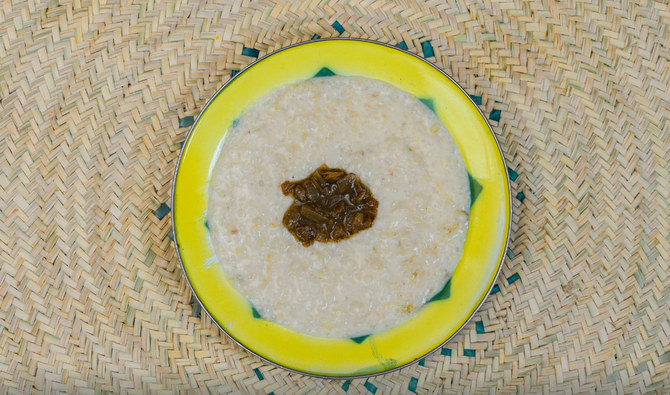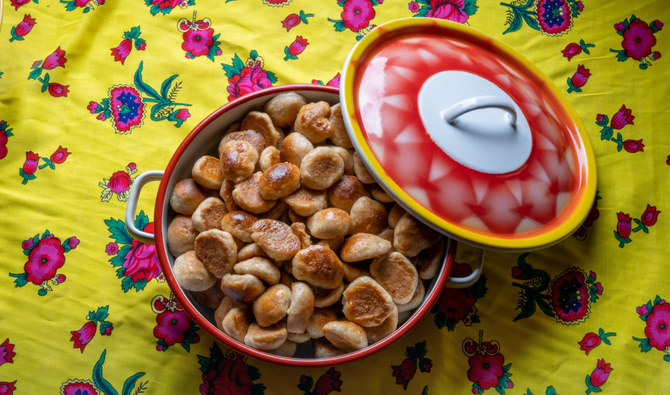RIYADH: The Saudi Ministry of Culture’s Culinary Arts Commission announced this month that jareesh has been selected as the national dish of the Kingdom of Saudi Arabia, and maqshush as its national dessert.
Jareesh is a slow-cooked dish of cracked wheat, vegetables and a sauce, with the optional addition of lamb. Maqshush is made of buckwheat bites topped with some combination of ghee, honey, dates, molasses and sugar.
The commission’s announcement forms part of its National and Regional Dishes Narratives initiative, which seeks to identify and celebrate popular dishes that are part of the Kingdom’s culinary culture. It will include research to discover which dishes best represent each region, the results of which are due to be announced later in the year.
In an exclusive interview with Arab News, Rakan Al-Oraifi, an internationally renowned Saudi executive chef, welcomed the initiative, which he said will showcase traditional dishes and ensure they are at the forefront of the Saudi Culinary scene.
Al-Oraifi, who is a member of the World Master Chefs Society and the founder of Kit Catering, said that jareesh originated in the central Najd region and there is more than one variety.
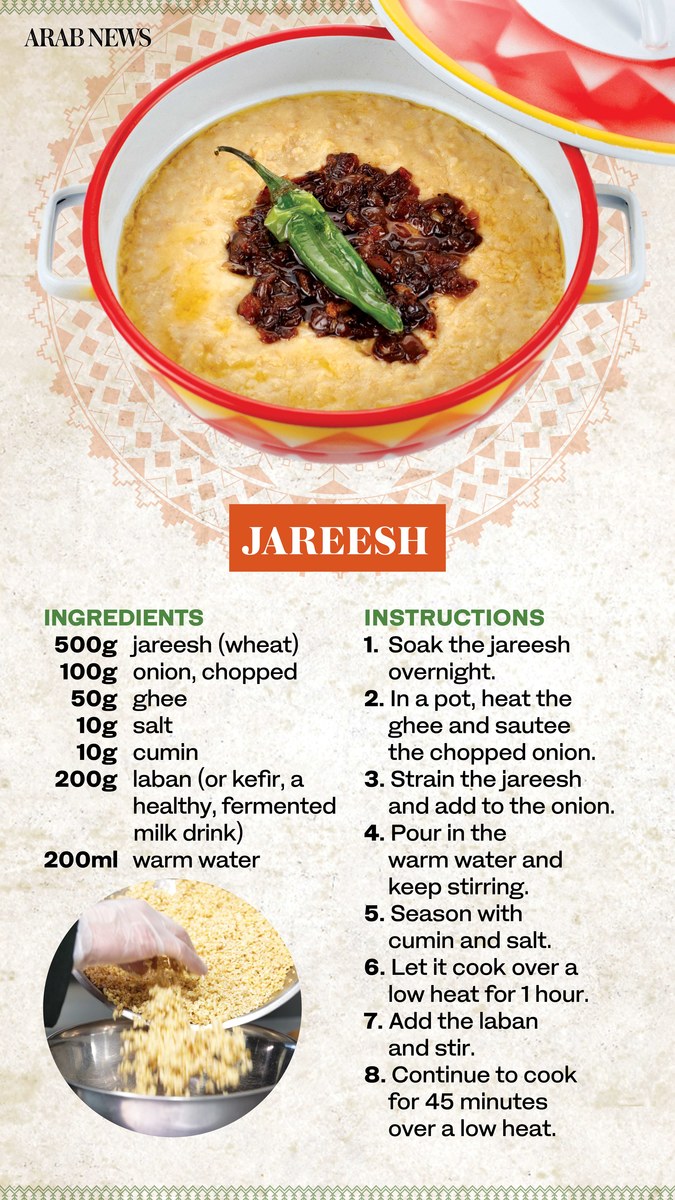
“Usually, we cook it with laban (buttermilk), so it is known as white jareesh,” he said. “We also have a second kind of jareesh, which is from Hail (in north-western Saudi Arabia), and it is red because we cook it with tomato sauce.”
The distinctive flavors of the dish come from its topping of ghee, caramelized onions and lemon powder, he added.
The selection of jareesh as national dish reflects its popularity across Saudi society, the Culinary Arts Commission said, and references to it can be found in heritage books dating back centuries. It is considered one of the most important dishes in Saudi heritage and is known as “master of dishes,” it added.
Al-Oraifi said that the main reason jareesh is so popular is because people in the Najd region historically ate wheat rather than rice because it required fewer resources.
“Jareesh is a traditional dish everyone likes, young and the old,” he said. “The dish is filled with different flavors; it is kind of salty, a little bit sour because of the buttermilk, and you can eat it during winter or summer.”
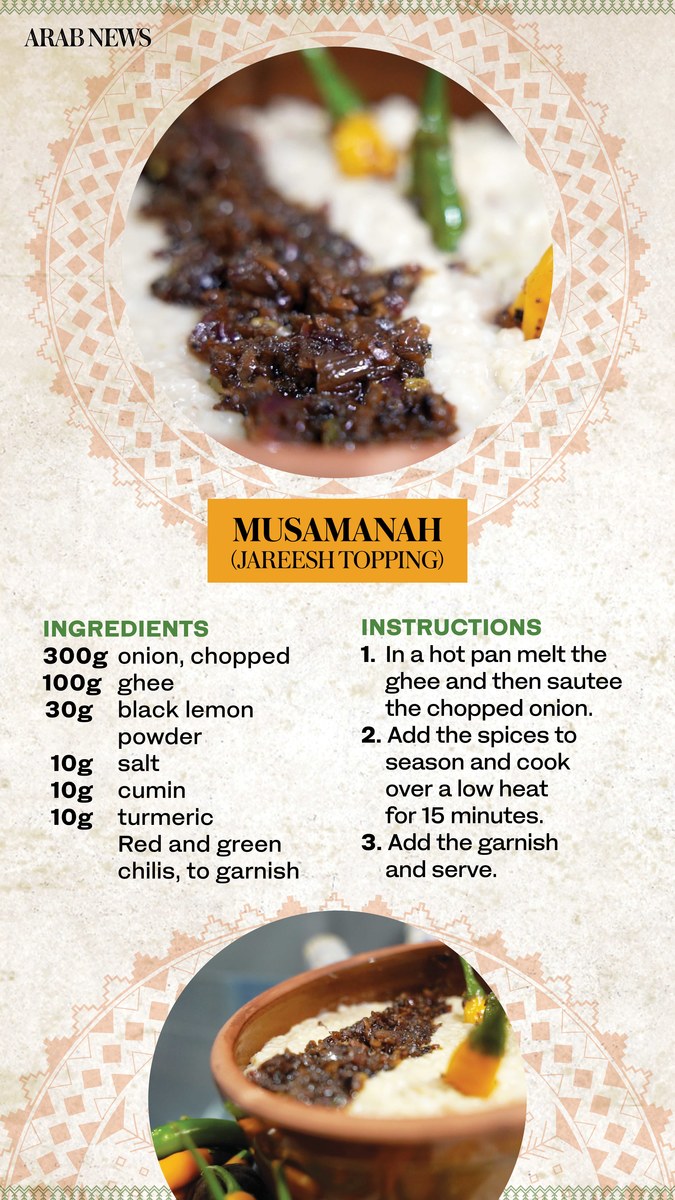
According to the commission, the dish is typically served on a variety of occasions, mainly happy ones, and though it originated in the central region it spread throughout the Kingdom.
Maqshush, meanwhile is a dessert typically served as breakfast in Saudi households, and comprises wheat flour, ghee and honey or sugar. It is particularly popular during the winter. According to the commission, the history of the dish dates back more than a century and it is commonly served with Saudi coffee.
Al-Oraifi — who is also a member of the World Association of Master Chefs, the Emirates Culinary Guild, Latin American gastronomic association Aregala International, and the Saudi Arabian Chef Association — is pleased that the dessert, which originated in Hail, is being recognized.
“Maqshush also is made from wheat,” he said. “We mix two kinds of flower in Maqshush: white and brown.”
He added that it is a popular breakfast dish because the wheat, ghee and honey provide energy and power.
In addition to their widespread popularity, the authenticity of their flavors, and their significance in Saudi culture, jareesh and maqshush were chosen as national dishes because they are simple to prepare using ingredients that are readily available, the commission said.
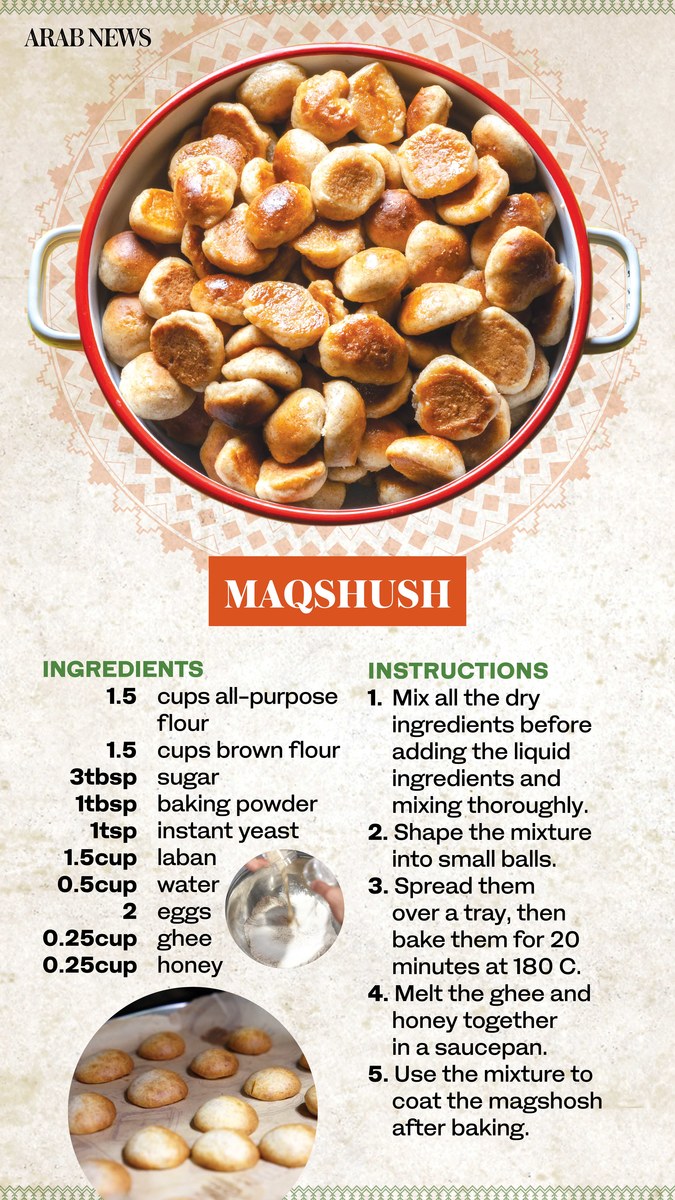
According to “Saveurs d’Arabie” (“Flavors of Arabia”), a cookbook published recently by the commission and Cassi Edition, maqshush might be considered a combination of pancakes and bread because of its taste and texture. It’s small, soft loaves are simple to make and were traditionally baked on a saj, a convex metal pan.
According to the book, the word maqshush means one who picks the smallest portion or pieces of food, which is thought to reflect the fact the dish is prepared from simple, inexpensive ingredients.
Al-Oraifi has been crowned the best chef in Saudi Arabia three times. In 2021, he was awarded first place in the culinary category at the National Cultural Awards. He was the executive chef of Suhail restaurant in Riyadh and AlUla, for which he created a unique, authentic menu.
He joined Al-Khozama group as Executive Chef in 2022 to create a contemporary Saudi menu for Maiz restaurant in Diriyah, and recently moved to Paris for the advanced study of French pastry.


